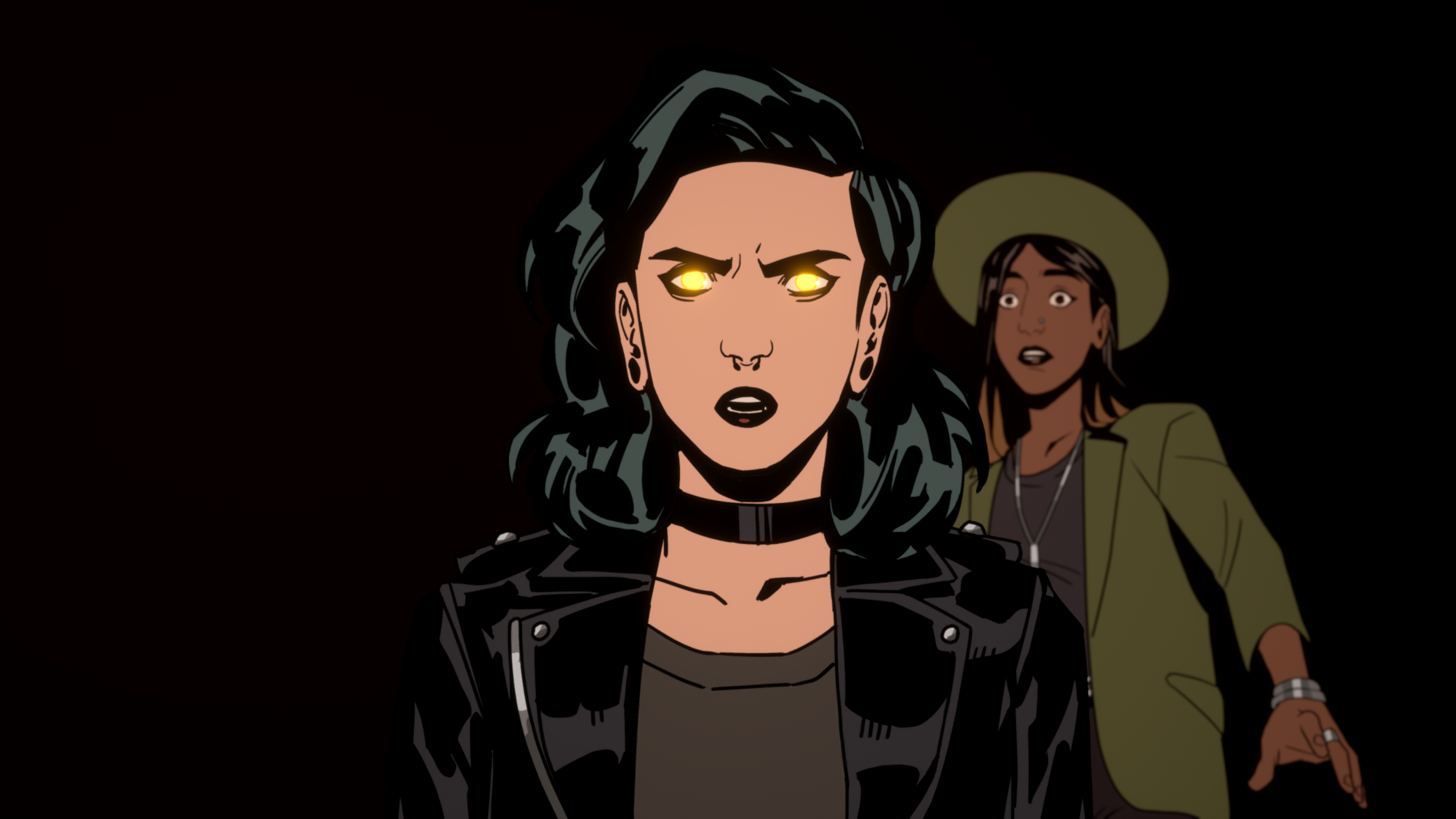
Provided by Summerfall Studios
Review: Stray Gods: The Roleplaying Musical is a Messy But Worthwhile Show
Stray Gods: The Roleplaying Musical is an ambitious debut from Summerfall Studios that doesn’t quite hit the mark.
Stray Gods: The Roleplaying Musical is the debut project of Summerfall Studios, a new development team of industry veterans with experience at studios like EA, Obsidian Entertainment, and Wizards of the Coast. Notably, the studio is headed by former Dragon Age world designer and lead writer David Gaider.
“Characters are at the heart of any good game narrative. If we love them, we love their world, and that’s why I’m most passionate about creating them,” Gaider wrote on the Summerfall website, and that design philosophy is apparent in this game.
While Stray Gods has compelling, complex characters and a world that invites more questions, its actual plot and overall mystery are mediocre at best.
Stray Gods casts us as Grace, a recent college dropout who’s feeling adrift as she tries to find a new plan for her life. She and her best friend/roommate Freddie are in a band together, and we open on them holding auditions to find some new blood. After everyone is gone, Grace sings a lone lament which attracts the attention of a stranger who introduces herself as Calliope. The two form an instant connection, and Grace hopes to add this new acquaintance to the band.
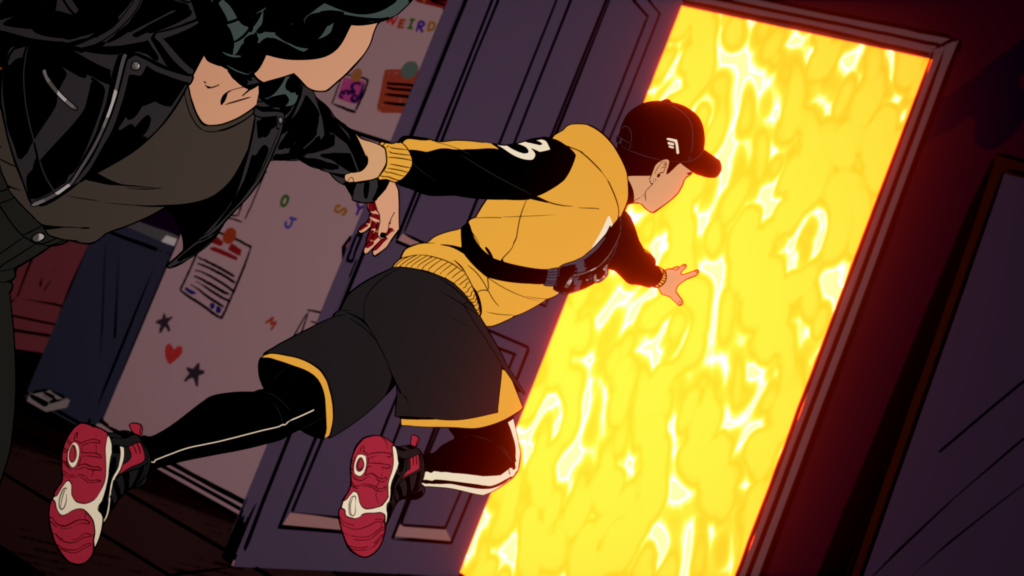
But fate has other plans in store, and the next time the two meet is just hours later when Calliope stumbles into Grace’s apartment, bloodied and dying. Grace is unable to save her, and Calliope dies in her arms, passing a strange golden light on when she passes. This is her soul, the thing that makes her an Idol, a god.
Grace is quickly whisked into a world of living legends and gods that secretly walk amongst us regular people. The leaders of this world, The Chorus – made up of Athena, Apollo, Aphrodite, and Persephone – come to the decision that Grace must be executed for murdering Calliope, whether she did it or not. After fighting for herself, Grace is able to convince them to instead give her a week to prove her innocence.
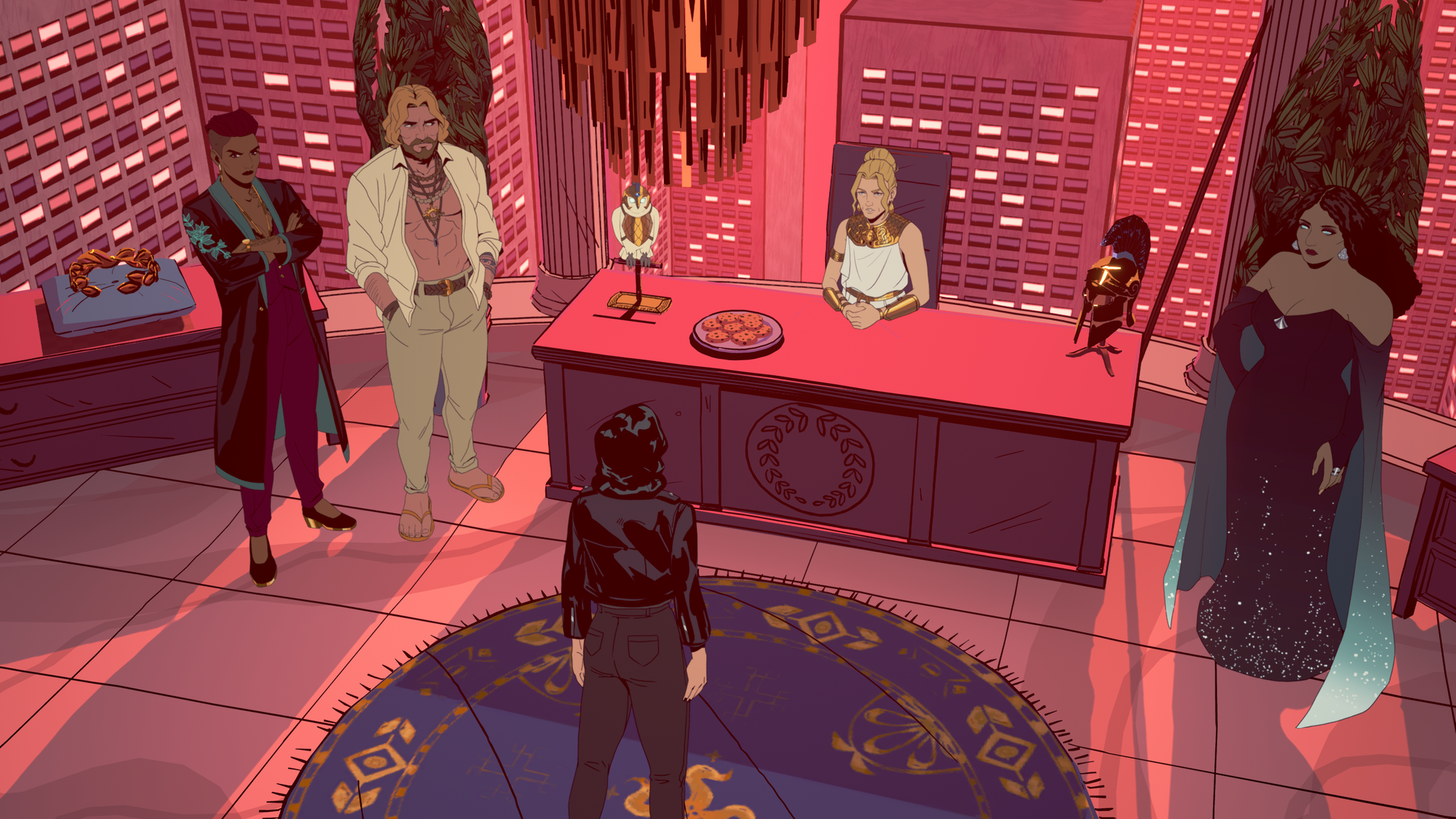
To do that, we as Grace need to navigate around the city, trying to find clues and talking to various mythological beings. Because Grace inherited Calliope’s power as the last Muse, she is able to pull people into singing battles with her to encourage them to tell her the truth. Personally, I’m not a huge musical person, so this feature didn’t do a lot for me, but I appreciated that there was a narrative explanation for this mechanic, instead of having it solely be a gimmick. None of the vocal performances in this star-studded game are bad, either, but some of them leave something to be desired, and others just don’t quite feel like they fit the characters.
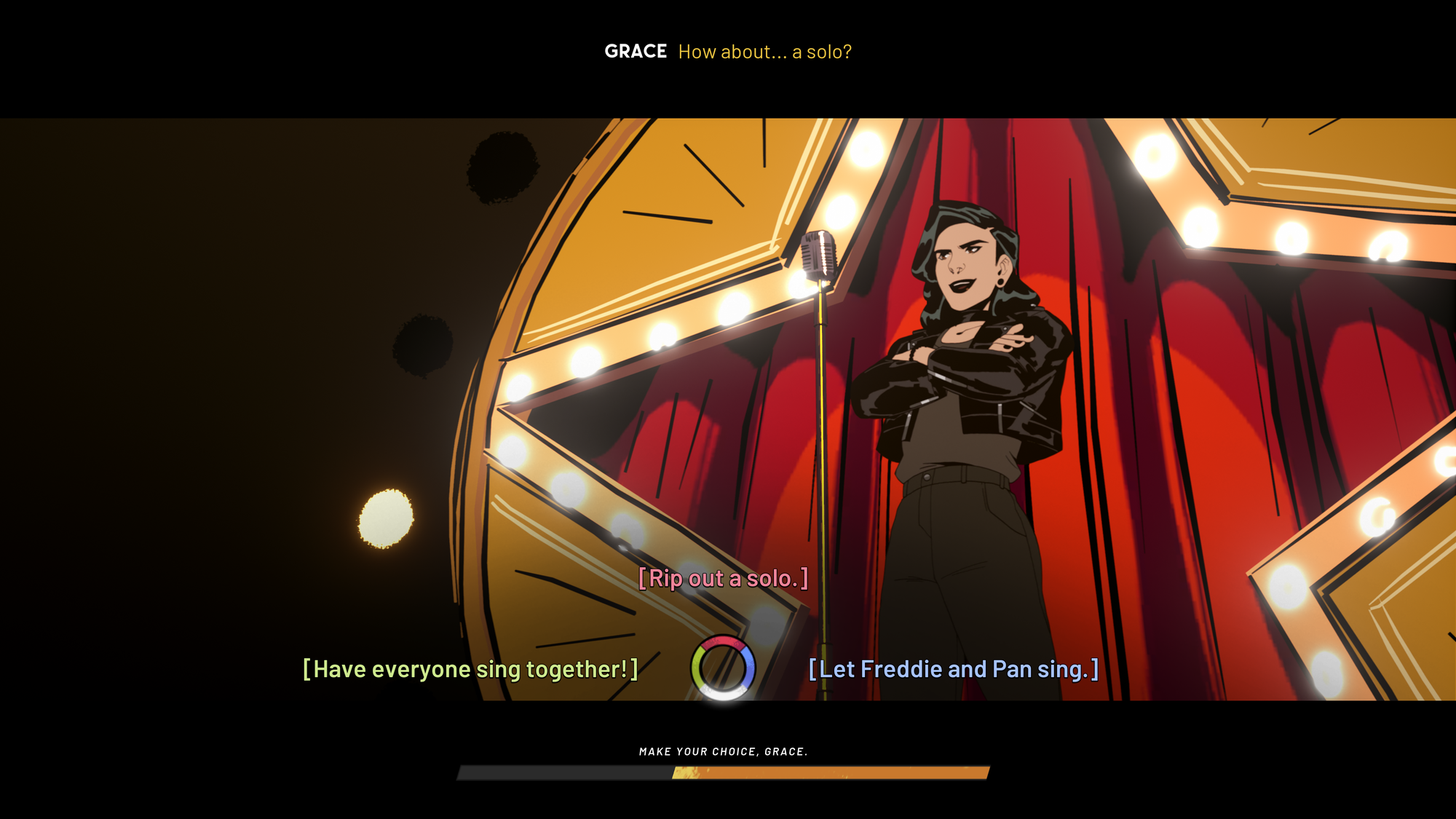
When you start your first singing battle, you will be able to choose a personality type for Grace from the three options of: empathetic, kick-ass, and intelligent. Depending on which you choose, you’ll have access to different options during certain dialogue sequences. Beyond that, your choice will influence the lyrics of Grace’s parts of her songs, which does add a nice degree of variety to what amounts to a fairly linear story.
This main plot is where Stray Gods is the weakest. Its murder mystery is boring and relatively easy to suss out, with Grace even being able to guess the right culprit multiple times before the week ends. There are also inconsistencies in the story that are a bit confusing, to say the least. I had multiple instances where I was alone as Grace, only to have Freddie show up in the following scene with no explanation. I also encountered scenes that revealed information about the murder that were later ignored and framed as big reveals again.
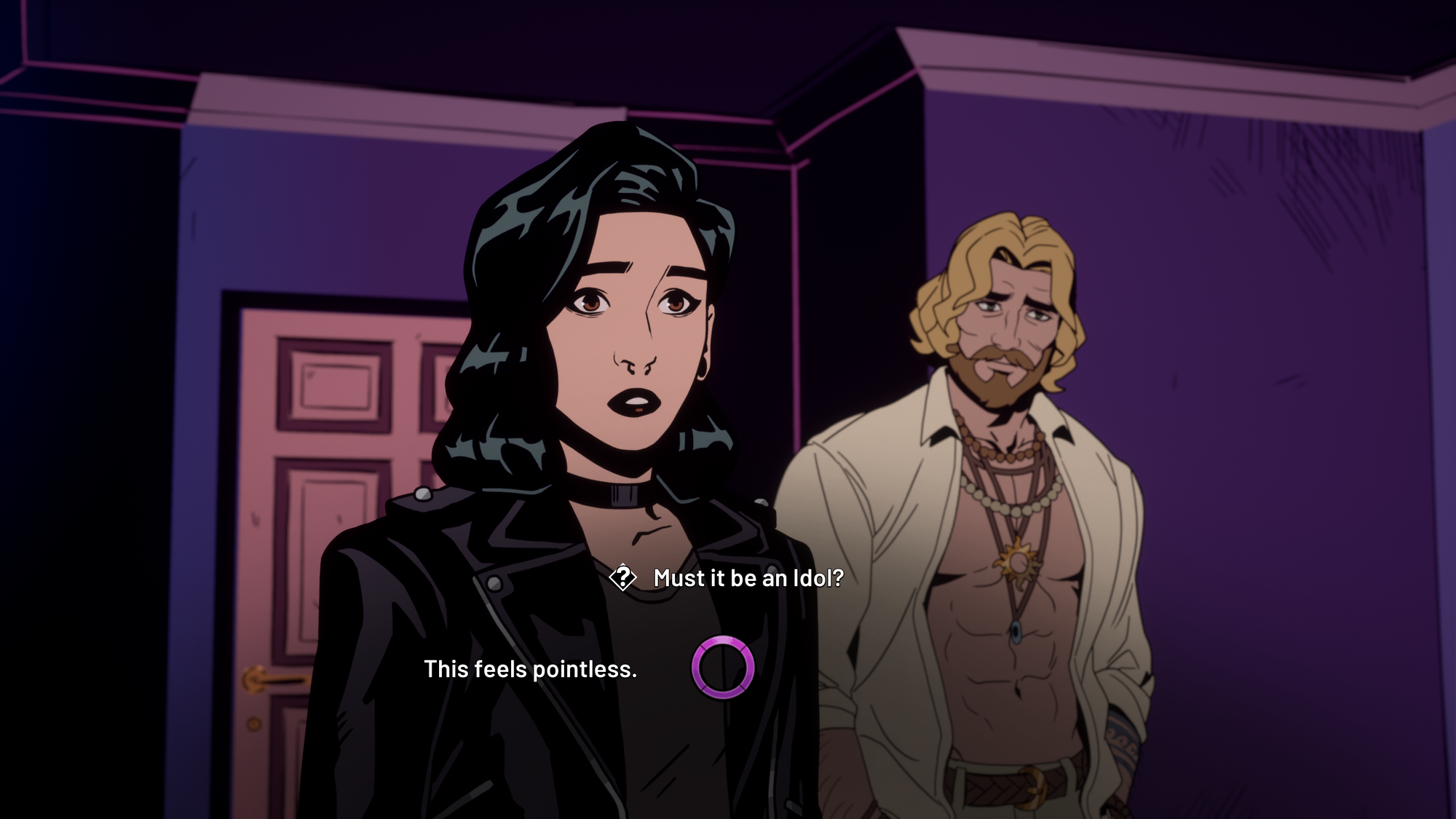
Beyond that, many of its supposedly “big” choices end up being inconsequential, or at least not impactful enough to actually lock you out of anything major in the story. Each time I was asked to choose a side in this game, I ultimately felt like there were no actual stakes to that decision. There are certain choices that will alter the order you find clues in, but you ultimately still reach the same conclusions.
Conversely, players are given way too many romance options in a game that is blatantly a love story between Freddie and Grace. Whether the feelings are mutual or if they want to pursue a relationship would have been a much more fulfilling arc to follow, and would make much more sense.
These two have tremendous chemistry, with Freddie making her love and care for Grace known frequently and often. None of the other three romance options have the same chemistry with the new Muse, nor the history to rival their connection. The gap between the other Idols and Grace in terms of age and experience just feels too wide to bridge, especially when the game frequently refers to her as a “lost little girl” and a “child.” Forcing in so many options despite Freddie and Grace’s obvious arc makes the game feel fan-servicey, and undercuts the game’s text and tone.
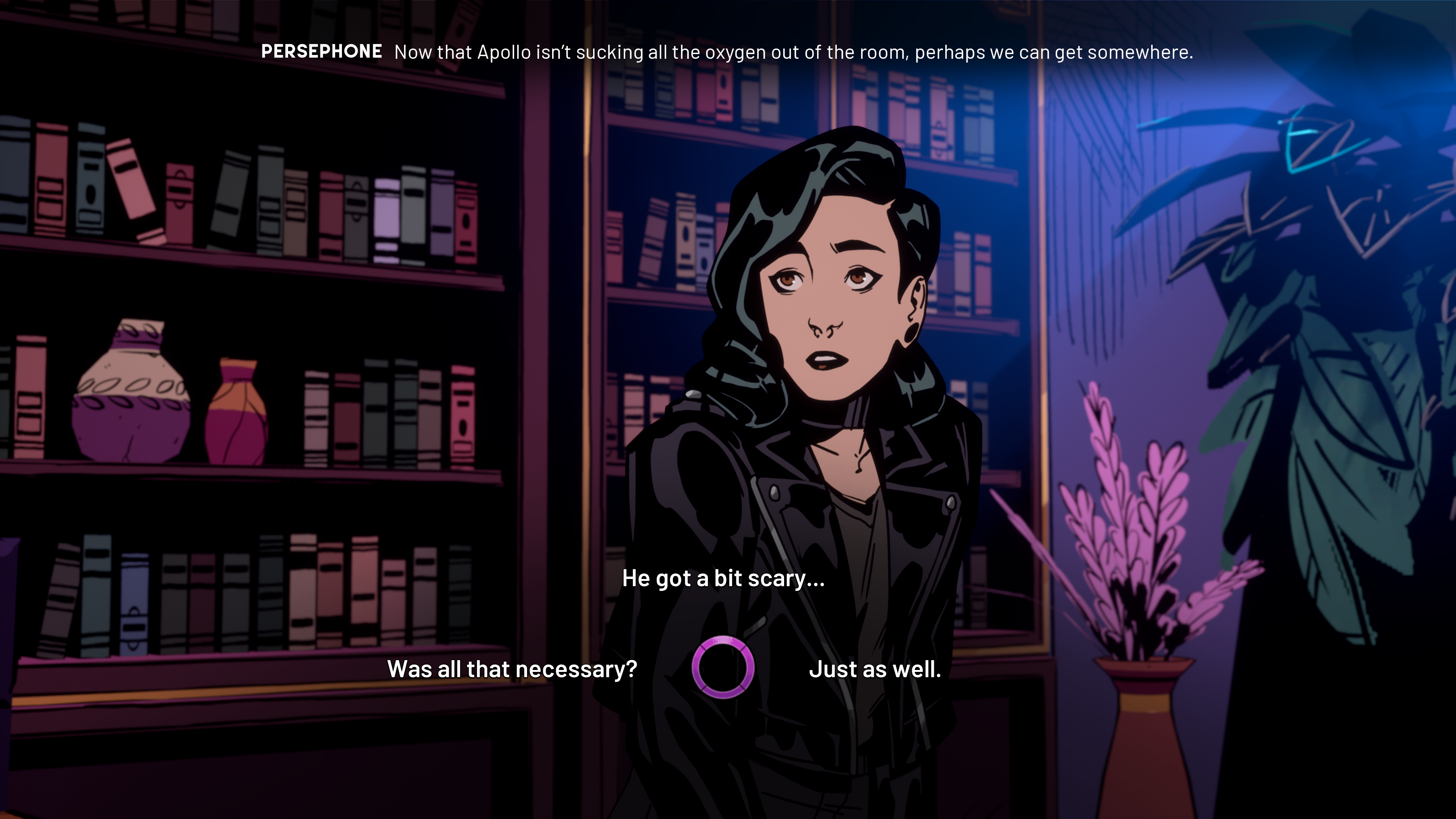
That said, the cast of characters that Grace encounters during her investigation are mostly well-written and complex, encapsulating the reality of what beings like the Idols would probably be like. Stray Gods doesn’t want to shy away from the faults these characters have, and it’s willing to take on some pretty intense topics between them. There’s a scene between Eros and Aphrodite that made me cry twice. The game shines brightest in moments like these, and are what make it a worthwhile play in spite of its underwhelming murder mystery.
Those coming to Stray Gods for a compelling who-dunnit are probably going to be disappointed. But if you enjoy compelling worldbuilding and characters that feel real, this game is worth your time. The narrative execution is lacking, but Gaider himself states that characters are always his priority, and those found in this cast are some of the best written I’ve seen in a while.
If you like what we do here at Uppercut, consider supporting us on Patreon. Supporters at the $5+ tiers get access to written content early.





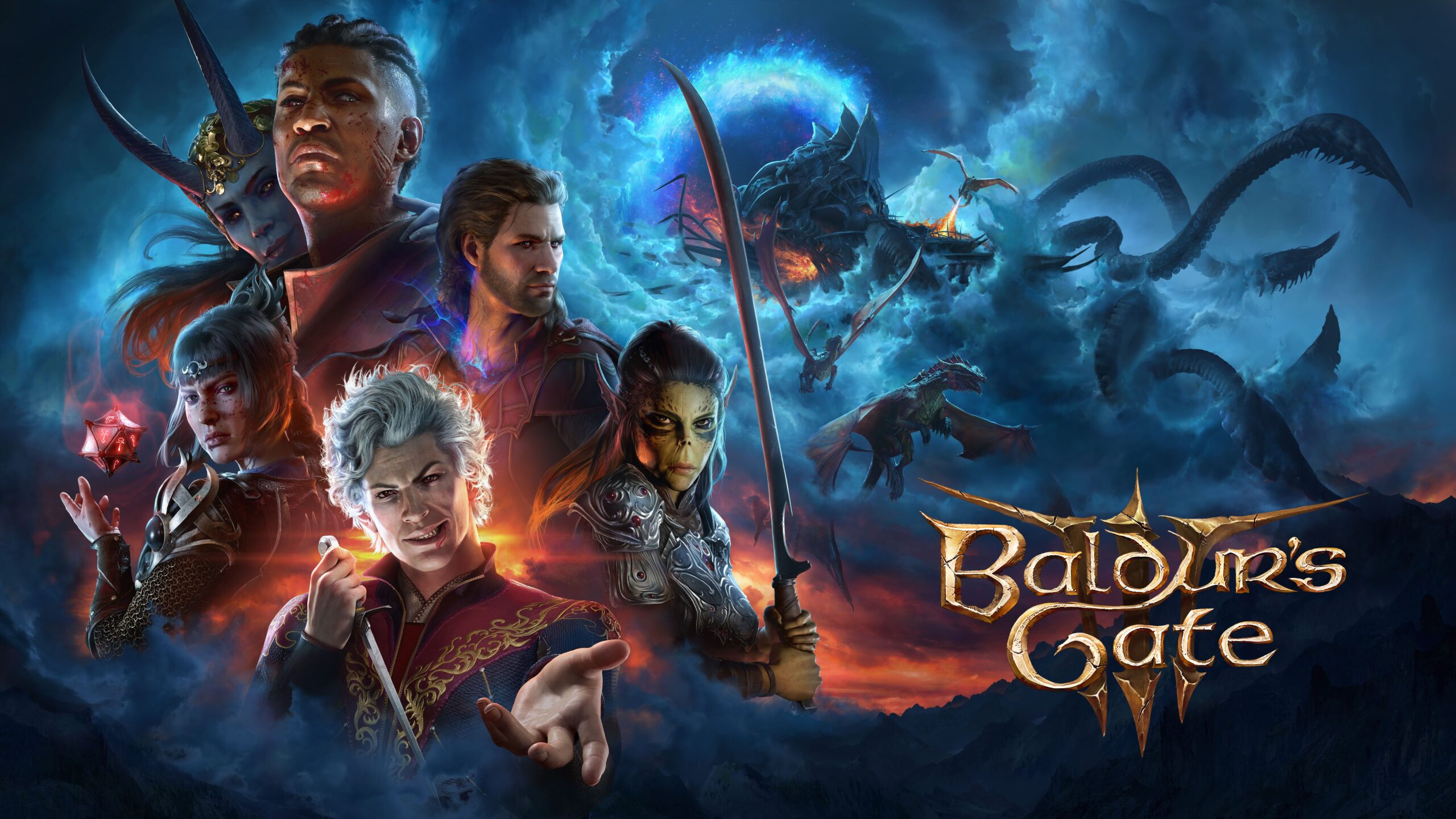
2 thoughts on “Review: Stray Gods: The Roleplaying Musical is a Messy But Worthwhile Show”